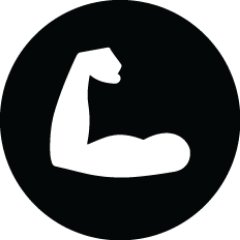
By Yolanda Lau
In the future of work, the critical skills for success are increasingly soft skills like emotional intelligence, adaptability, and resilience. Success in the future of work requires becoming a lifelong learner. The world is changing faster than ever, and only through lifelong learning will we have the capability to adapt along with it.
Here are 11 strategies to develop a habit of lifelong learning.
1. Ask why.
Think back to when you were a child. Chances are you drove your parents a little crazy with all of your questions. Be like a child and always ask why — question everything. But be open to changing your mind. Seek out counter opinions and acknowledge alternative viewpoints — and you’ll learn more from these perspectives and push yourself further.
2. Learn to love challenges.
Challenges stimulate learning and bring a sense of fulfillment. I love challenges and welcome struggles and obstacles as the things most worth doing are often hard. Without challenges, we stagnate. While challenges and bumps in the road can be uncomfortable, these opportunities are the ones from which you will learn the most. Get ready to take risks by setting stretch goals for yourself. A willingness to take risks doesn’t mean you need to take on every challenge — it’s about taking measured risks that push you beyond your current limits.
3. Embrace failure.
Failing is something you do because you’re pushing yourself to do more. Every failure is an opportunity to learn. Don’t be ashamed or afraid of failure. You likely aren’t challenging yourself if you haven’t failed some of the time. I’ve found that failure has frequently been my best teacher, and my successes are a result of growth and learning from past failures and mistakes. Embrace failure and mistakes as opportunities to integrate valuable feedback and information. After all, as Albert Einstein once said, “Failure is success in progress.”
4. Practice mindfulness.
I’ve found that mindfulness is an essential soft skill to learn as it amplifies your other soft skills. Mindfulness can boost your mental agility, self-awareness, and resilience. Plus, taking a mindful brain break can boost your productivity and effectiveness while increasing the “divergent thinking” that results in new ideas. A plethora of apps and programs, such as Headspace, Yoga Ed., and Calm can help you practice mindfulness and build this essential lifelong learning skill.
5. School is only the beginning.
School should function to build a foundation for lifelong learning. Lifelong learners realize that learning doesn’t stop when school ends. Never stop seeking opportunities to learn, prioritizing both surface learning and deep learning. While surface learning is quick and easy, deep learning takes more effort. Both are valuable.
Coursera, Udemy, and EdX are great for consuming content. Cohort-based courses like Maven, On Deck, and Ascend take learning to the next level by bringing together groups of learners.
6. Be open to feedback.
Be proactive about asking for feedback. Surround yourself with mentors, personal advisors, and coaches and be willing to ask for help. I’ve found that having a community and network of peers and advisors has been essential in not only solving day-to-day problems or identifying new opportunities, but also in fueling my personal development. Frequent feedback has helped me to continually grow personally and professionally.
7. Become a polymath.
In the past, it paid to be a specialist — to accumulate as much knowledge as possible in only one area. But in the future of work, polymaths and expert generalists have the advantage. Developing deep knowledge in multiple areas, ideally with cross-disciplinary awareness, makes it easier to uncover unexpected connections and convergences. In a world where data is everywhere, pattern recognition and intuitive thinking have become more important than ever. Being an expert generalist or polymath requires continuous education — lifelong learning.
8. Teaching brings mastery.
In my experience, teaching brings mastery. I’ve been a teacher or teaching assistant for everything from entrepreneurship to ESL, citizenship to physics, biology to coding, sustainability to app building — each teaching opportunity was a window to deepen my understanding. Answering questions on the fly is the quickest way to test your knowledge and learn what you don’t know. Having spent my career advising entrepreneurs and small business owners, I’ve constantly been learning as I teach. I love it when I get to tell a founder, “I don’t know,” as it gives me something to learn.
9. Stay curious.
Talk to strangers. Be present in conversations and look for things that stimulate your curiosity. Pull on those threads and be open to learning from strangers. Follow your curiosity, and you never know where it will lead you. Sign up for that yoga teacher certification course, take that cooking class, try out a new sport, go for that art class. You need to keep that sense of wonder you had as a child to spark inquiry and continual exploration. This curiosity and openness will fuel your lifelong learning.
10. Prioritize process over goals.
Life is not about completing a series of goals. Most of us have had long and winding career paths, which didn’t necessarily make sense at the moment. When you prioritize the process of learning over the goals of completing the class or diploma, you’ll open yourself to new opportunities. Changing your mindset gives you the flexibility to follow your curiosity and may lead to opportunities you would never have otherwise thought of.
11. Give yourself the gift of grace.
But give yourself the gift of grace. It’s okay if you don’t know something. Embrace this as a challenge and as an opportunity to learn something new. It’s also okay to sprint and rest. In fact, giving yourself breaks is the best way to recharge and nurture curiosity. Breaks give your brain space to integrate your learning, developing connections between seemingly unrelated areas.
Become A Lifelong Learner
Lifelong learning isn’t just about preparing for the future of work. Lifelong learning also brings joy and a deep sense of empowerment and fulfillment — making life more meaningful. Grow and succeed professionally and personally by embracing lifelong learning.
This article was originally published in Forbes.
Interested in the Future of Work? Join the Work of the Future #FutureOfWork Facebook Group.

Yolanda Lau is an experienced entrepreneurship consultant, advisor, and Forbes Contributor. She is also an educator, speaker, writer, and non-profit fundraiser.
Since 2010, she has been focused on preparing knowledge workers, educators, and students for the future of work.
Learn more about Yolanda here.


